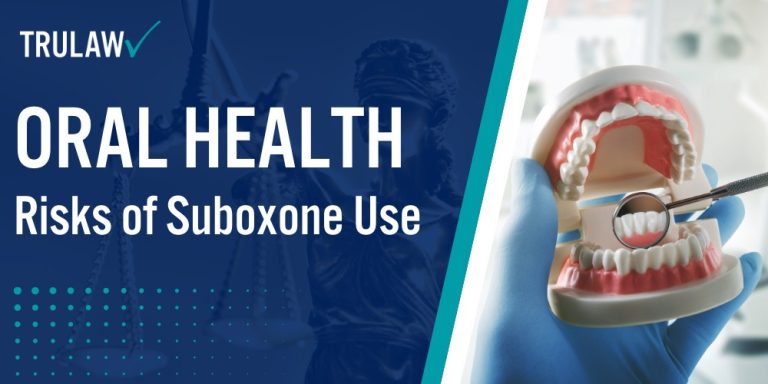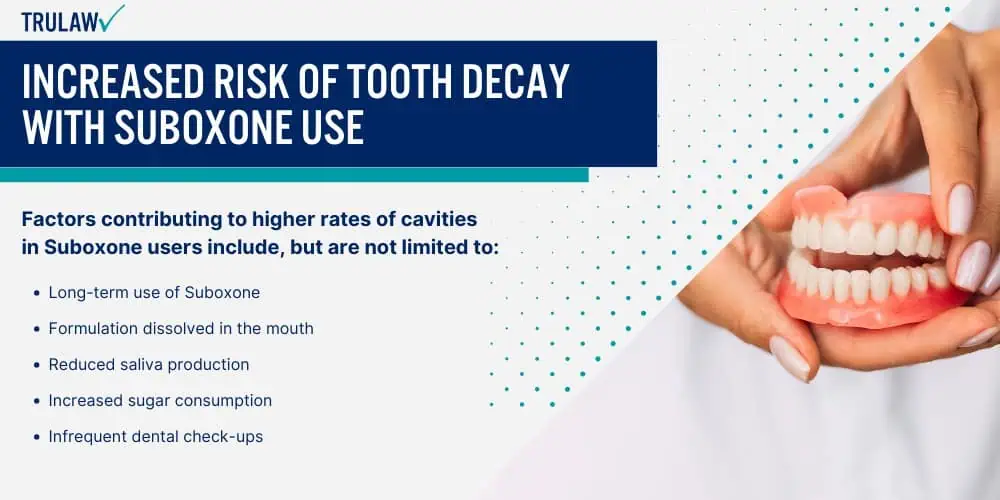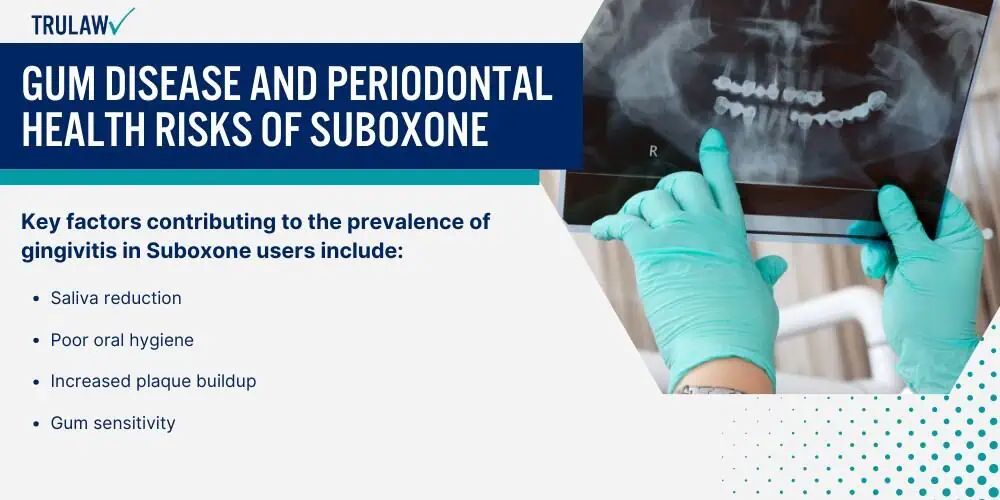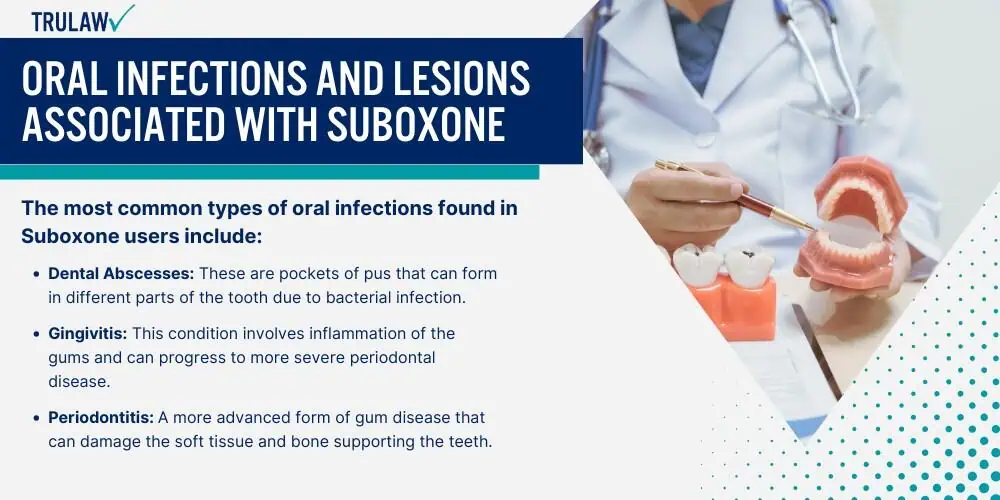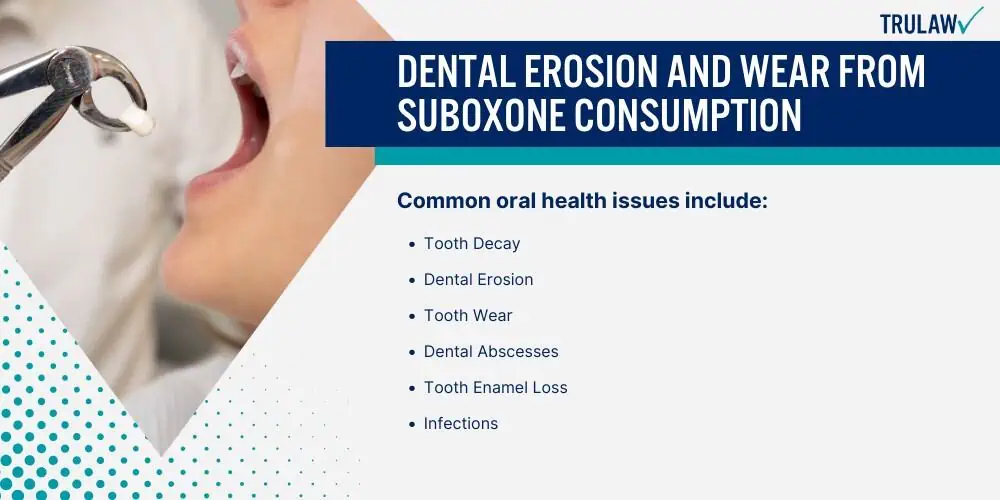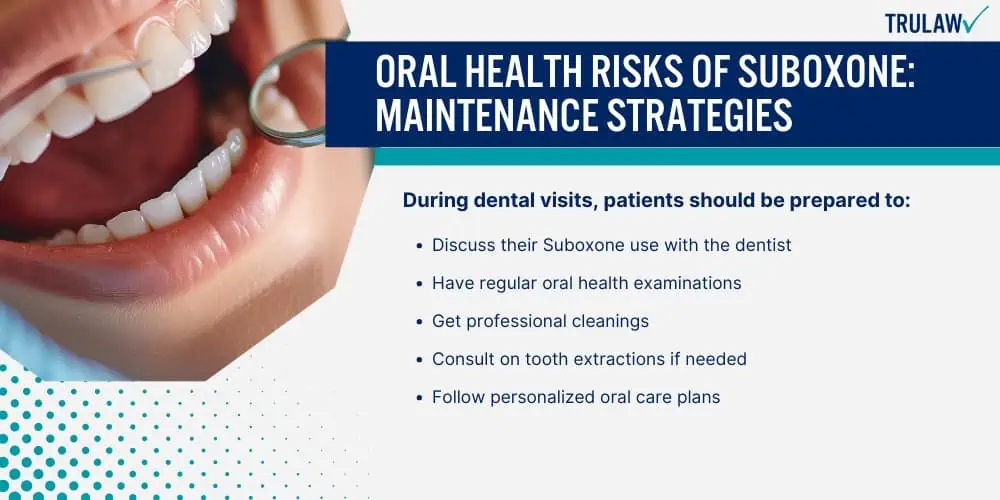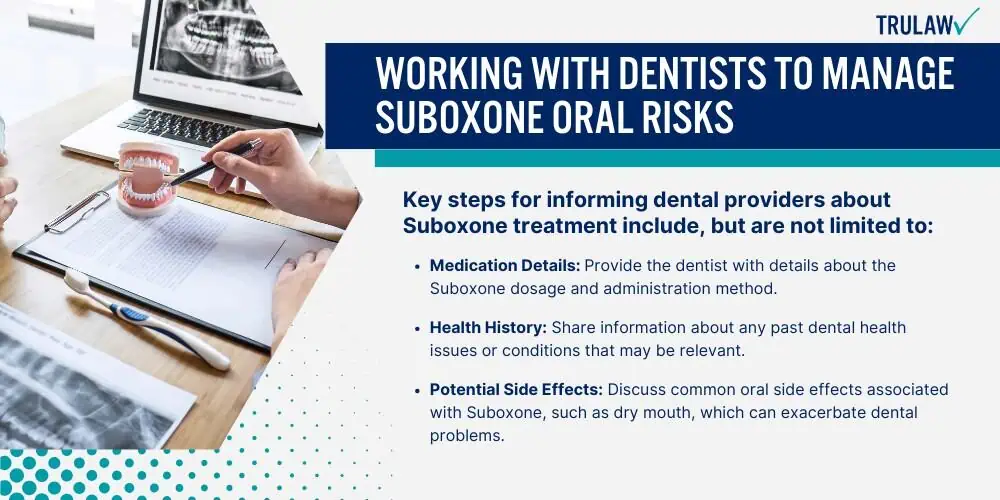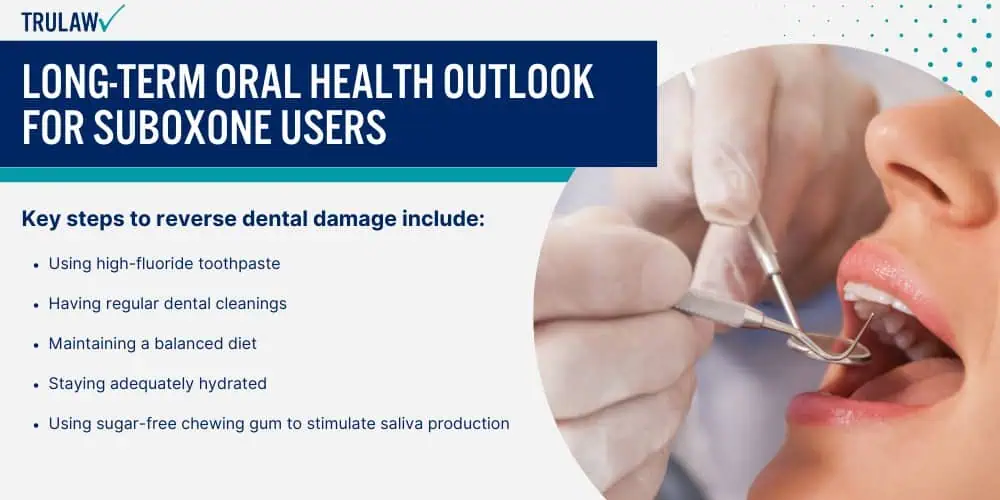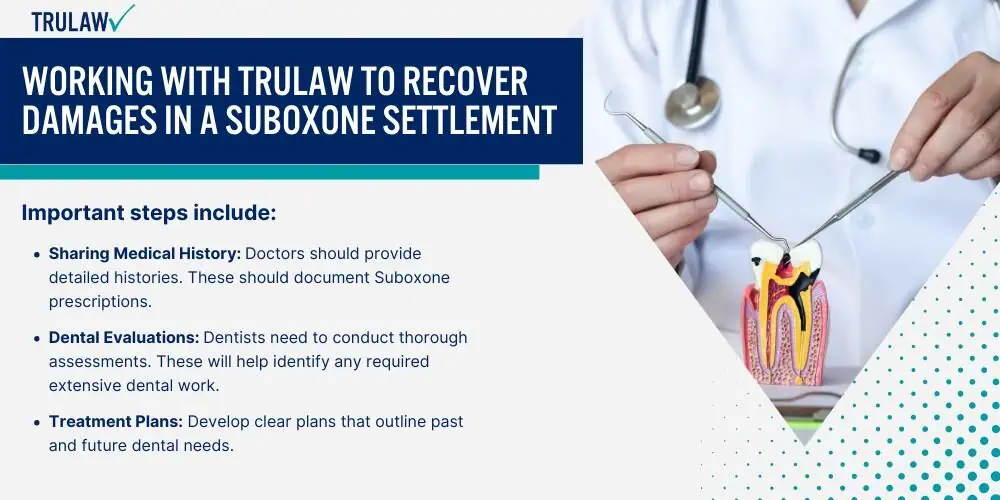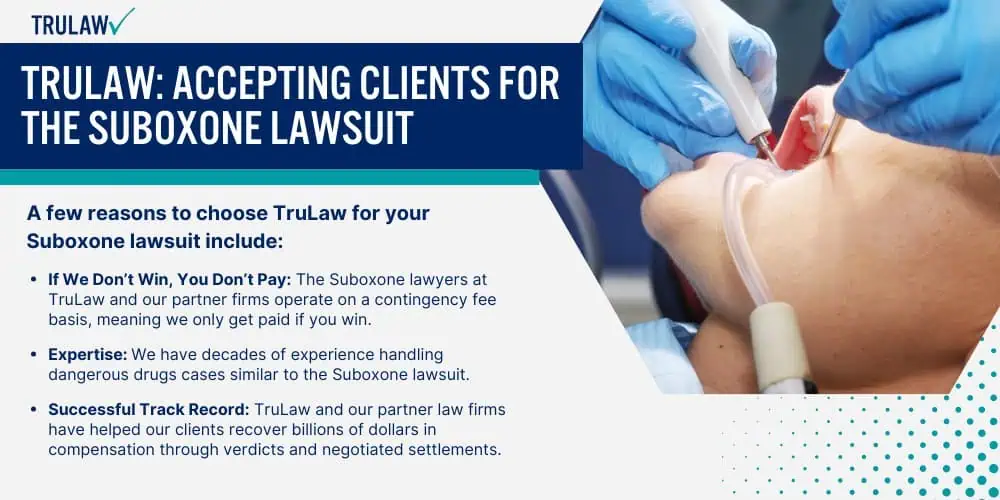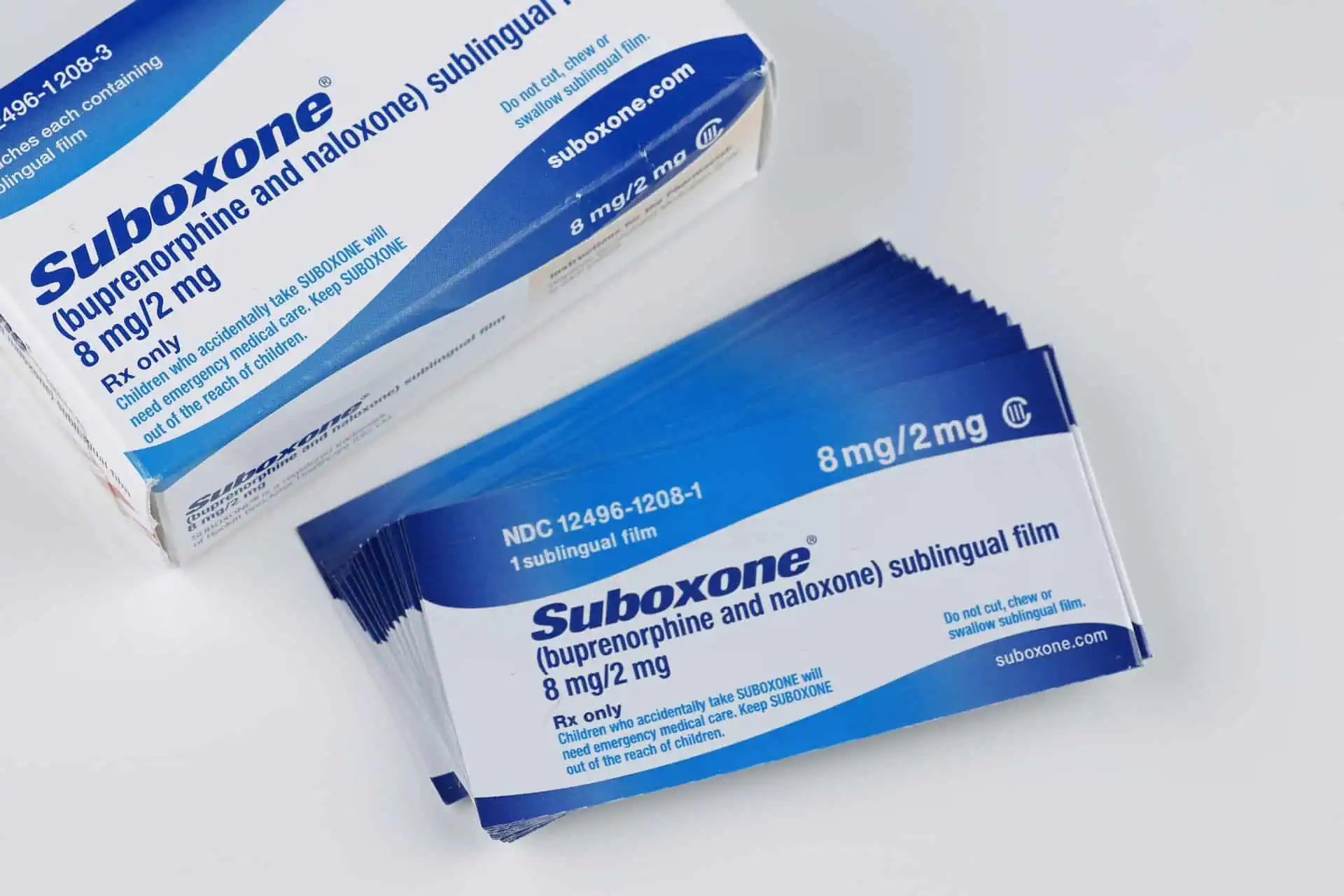The use of sublingual buprenorphine, known as Suboxone, has been associated with notable changes in saliva production and oral pH levels.
These changes can contribute to various oral health issues, including dental caries, tooth decay, and other adverse dental outcomes.
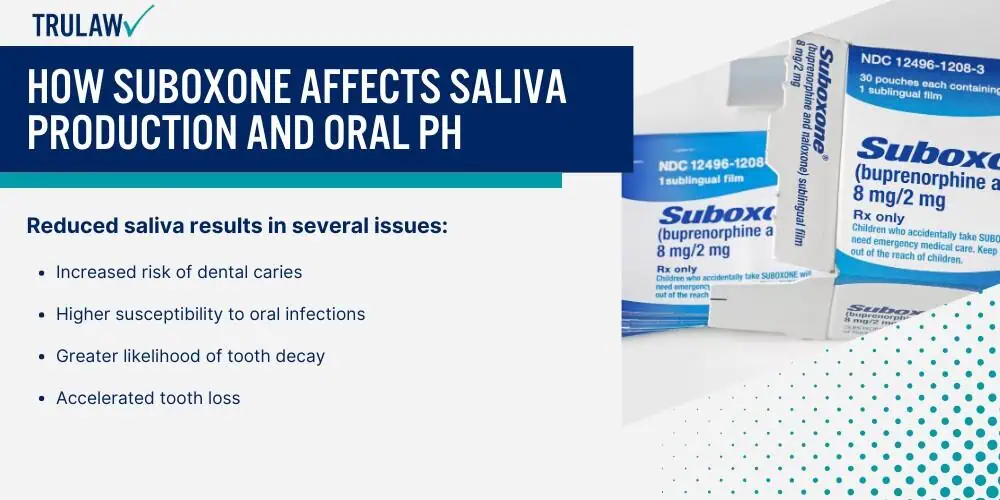
Suboxone’s Impact on Saliva Flow and Dry Mouth
Suboxone can significantly reduce saliva flow, leading to dry mouth or xerostomia.
The frequent sublingual buprenorphine-naloxone exposure in the mouth alters normal salivary functions.
Reduced saliva results in several issues:
- Increased risk of dental caries
- Higher susceptibility to oral infections
- Greater likelihood of tooth decay
- Accelerated tooth loss
The decrease in saliva hampers the natural cleaning process, fostering an environment where bacteria thrive.
This can further lead to worsening dental health and dental disease.
Changes in Oral pH Levels from Suboxone Use
Sublingual buprenorphine can also alter the pH balance in the mouth.
The dissolution of Suboxone in the mouth creates prolonged acidic exposure, which adversely affects dental enamel.
Key impacts of the changes in Oral pH levels include:
- Erosion of dental enamel
- Increased risk of dental caries
- Potential for oral infections
- Contribution to adverse dental outcomes
This acidic environment can lead to softening of the enamel, making teeth more susceptible to decay and potentially leading to significant tooth loss.
Maintaining a neutral pH balance is critical, as suboptimal pH fosters dental disease and deteriorating oral health.
